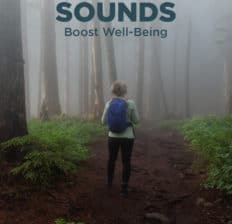This Dr. Axe content is medically reviewed or fact checked to ensure factually accurate information.
With strict editorial sourcing guidelines, we only link to academic research institutions, reputable media sites and, when research is available, medically peer-reviewed studies. Note that the numbers in parentheses (1, 2, etc.) are clickable links to these studies.
The information in our articles is NOT intended to replace a one-on-one relationship with a qualified health care professional and is not intended as medical advice.
This article is based on scientific evidence, written by experts and fact checked by our trained editorial staff. Note that the numbers in parentheses (1, 2, etc.) are clickable links to medically peer-reviewed studies.
Our team includes licensed nutritionists and dietitians, certified health education specialists, as well as certified strength and conditioning specialists, personal trainers and corrective exercise specialists. Our team aims to be not only thorough with its research, but also objective and unbiased.
The information in our articles is NOT intended to replace a one-on-one relationship with a qualified health care professional and is not intended as medical advice.
Woodland Sounds Boost Well-Being (Even Better Than a Meditation App!)
April 26, 2022

Wind rustling through the leaves of a mighty white oak. The pretty, thin whistle of the white-throated sparrow. The trickle of a stream as it ripples by.
These are the woodland sounds that bring me peace, and now there’s evidence proving what many of us already suspect — nature sounds prime our bodies for better health.
(In some cases, even more so than a meditation app!)
Study Findings: Woodland Sounds Boost Well-Being
In 2019, British researchers set out to see if common noises you can hear in a forest actually improve a person’s well-being.
They exposed 600 study participants to silence, woodland sounds and a meditation app.
Here are some of the key findings:
- When people listened to nature sounds, they experienced a 30% increase in relaxation.
- Those listening to a meditation app reported no boost in relaxation.
- Woodland sounds also elicited a 24% reduction in stress and a 19% lower rate of anxiety.
Here’s how study participants ranked their preference for sounds in the woods:
- Birdsong
- A running stream
- Wind rustling tree leaves
- Silence
- Twigs snapping underfoot
- Animal noises
- Wind whistling through trees
- Rain falling on leaves
- Tree seeds hitting the ground
- Squelching of mud
“There is a large body of scientific evidence demonstrating that experience of nature can benefit health and wellbeing, including recovery from everyday psychological stress,” sys Eleanor Ratcliffe, Ph.D., lecturer in environmental psychology at the University of Surrey in the United Kingdom.
“Much of this research has focused on visual experiences, but more recent work has shown that the sounds of the outdoors, such as birdsong, wind, and water, can also improve mood and reduce stress. These sounds offer a way to connect with nature no matter where you are.”
Maybe it’s time we all carved out more time to listen to nature.
Other Benefits of Being Outdoors in Nature
Forest bathing, the act of mindfully immersing yourself in a forest setting, has been shown to elicit a host of positive benefits, including:
- Boosted immune function
- Lower blood pressure
- A more balanced nervous system
- Stress reduction
- Improved creativity
- Reduced neural activity in an area of the brain linked to risk for mental illness
More and more conservation biologists are discovering the potent benefits of natural acoustic soundscapes, and there’s a big push underway to preserve the sounds of the national parks and beyond.
Whether you want to hear noises of a forest or other soundscapes, let the sounds of nature affect your well-being by visiting the National Park Foundation’s and Natural Park Service’s soundscapes resource, PARKTRACKS. For many of us, it’s one of the few ways to enjoy natural sounds for stress relief without the constant hum of manmade noises in the background.
If you want to do more on a collective local level, support land preservation groups, and work with city and town mangers to bring green infrastructure to your neighborhood. Who knows, maybe before you know it, you’ll be falling asleep to nighttime woodland sounds through an open window, no app required!
Conclusion
- Hearing woodland sounds boosts well-being even better than a meditation app, according to 2019 research.
- Study participants listed birdsong, a running stream and winds rustling in the wind as their top three nature sounds.
- The health benefits of green spaces often focuses on visual aspects, but emerging research suggests hearing songs from the natural environment reduces anxiety and induces relaxation, too.









